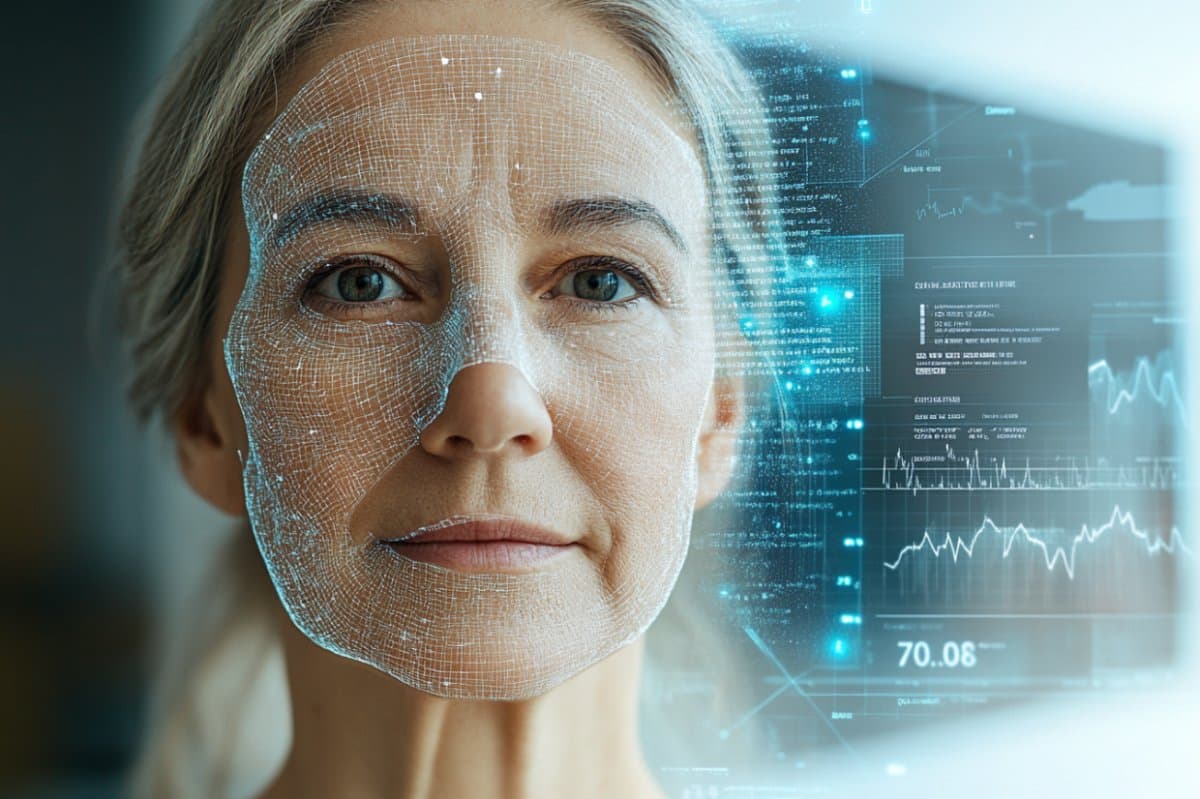Revolutionizing Cancer Care: Meet FaceAge, the AI That Predicts Biological Age from Facial Photos
Introduction to FaceAge
In a groundbreaking development, researchers at Mass General Brigham have unveiled FaceAge, an innovative AI tool designed to estimate biological age and predict survival outcomes for cancer patients using just facial photographs. This cutting-edge technology leverages deep learning algorithms to analyze facial features, providing insights that could significantly enhance clinical decision-making.
The Significance of Biological Age
While chronological age is often used as a standard measure in healthcare, it does not always accurately reflect a person’s biological health. FaceAge aims to bridge this gap by offering a more nuanced understanding of aging. The tool reveals that cancer patients, on average, appear about five years older than their actual age, highlighting the toll that illness can take on one’s appearance and overall vitality.
Key Findings from the Study
In a comprehensive study involving over 6,000 cancer patients, researchers found that those with higher FaceAge estimates tended to have poorer survival rates. This correlation underscores the importance of biological age as a predictive factor in cancer prognosis.
- FaceAge AI: Utilizes facial photos to predict biological age and survival outcomes.
- Cancer Insight: Patients with cancer exhibited an average FaceAge of five years older than their chronological age.
- Clinical Boost: Integration of FaceAge improved clinicians’ predictions of life expectancy, particularly in palliative care settings.
How FaceAge Works
The AI tool was trained using a dataset of 58,851 photographs from presumed healthy individuals. After extensive training, FaceAge was tested on a cohort of 6,196 cancer patients. The algorithm analyzes various facial features such as skin texture, wrinkles, and overall appearance, which are indicative of biological aging.
Clinical Implications
The results of the study were published in The Lancet Digital Health, where the researchers explained how FaceAge can significantly augment traditional clinical assessments. According to Hugo Aerts, PhD, co-senior author of the study, “This work demonstrates that a simple photo can contain crucial information that can inform clinical decision-making.”
Improving Prognostication in Cancer Care
One of the striking findings of the study is that FaceAge outperformed clinicians in predicting short-term life expectancy for patients receiving palliative radiotherapy. When clinicians had access to FaceAge data, their predictions improved significantly, showing the potential of integrating AI into cancer care settings.
A New Perspective on Aging
The tool not only helps in predicting survival outcomes but also challenges the conventional understanding of aging in clinical practice. Facial features that suggest a person is younger than their chronological age are associated with better responses to cancer therapies. This insight opens new avenues for personalized treatment plans and interventions.
Addressing Physician Bias
Human biases can often influence clinical judgments, particularly when assessing a patient’s age and overall health. FaceAge offers a more objective measure, reducing the potential for bias in treatment decisions. By providing quantifiable data, it empowers healthcare providers to make more informed choices based on a patient’s biological condition rather than solely on their chronological age.
Future Research Directions
While the initial findings are promising, further research is necessary to validate FaceAge’s efficacy across diverse patient populations and stages of cancer. Future studies will also explore its capability in predicting other diseases and general health status.
Expanding the Clinical Application
Investigators are keen to extend the application of FaceAge beyond oncology. The potential for this technology to serve as a non-invasive biomarker for aging and various chronic diseases is immense. The implications could revolutionize how we approach not only cancer care but also general health monitoring and disease prevention.
Ethical Considerations
As with any AI technology, ethical considerations regarding patient data and privacy are paramount. Researchers emphasize the importance of establishing a robust regulatory framework to ensure responsible use of FaceAge in clinical settings.
Funding and Support
This groundbreaking research has garnered financial support from prominent institutions, including the National Institutes of Health and the European Research Council. Such backing highlights the significance of this work and its potential for broad application in healthcare.
Community Impact
The introduction of FaceAge could significantly impact communities by providing earlier detection and intervention strategies. As healthcare becomes increasingly personalized, tools like FaceAge are essential for tailoring treatment to individual patient needs.
Potential Beyond Cancer Care
As the researchers continue to explore the multifaceted applications of FaceAge, the potential to use this technology as an early detection system for various chronic conditions is particularly exciting. This could lead to earlier interventions and significantly improved health outcomes.
Collaboration for Success
The collaborative efforts of a diverse research team, including experts in AI and clinical medicine, have been crucial in developing FaceAge. This interdisciplinary approach ensures that the technology is both scientifically sound and clinically relevant.
Conclusion: A New Era in Precision Medicine
In summary, FaceAge represents a significant leap forward in the integration of artificial intelligence into healthcare. By accurately estimating biological age through facial photographs, the tool has the potential to transform cancer care and beyond. As researchers continue to refine this technology, it may pave the way for more precise, personalized medical interventions, ultimately improving patient outcomes and quality of life. With ongoing research and validation, FaceAge could become a cornerstone of modern medical practice, illustrating the profound impact of technology on healthcare.








